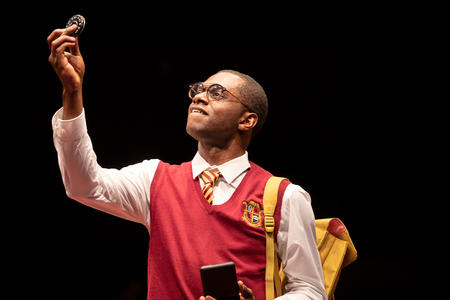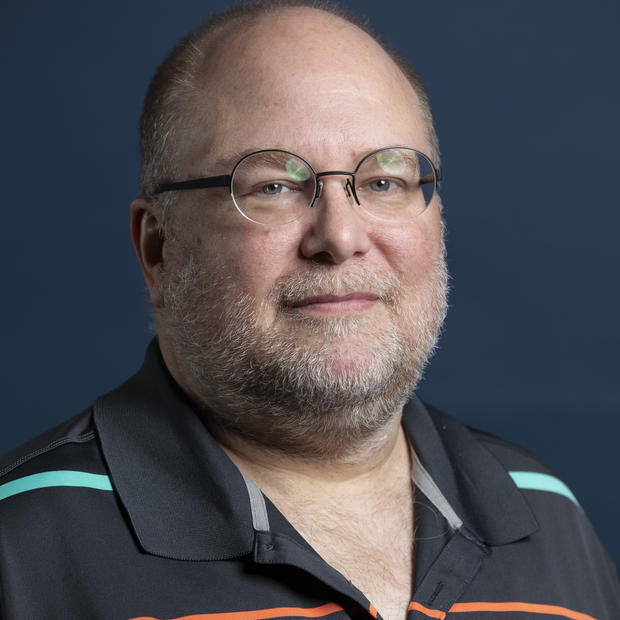“When she said she was interested in singing her first Wagner role, that planted the seed for something we thought could be very exciting,” says Aren Der Hacopian, Seattle Opera’s director of artistic administration and planning. “Mary Elizabeth is an artist we have full confidence in.”
In a recent Zoom chat, Williams unfolded her backstory: how she jumped career tracks from the courtroom to the stage; her path from Philadelphia to Paris; and her thoughts on her current Seattle Opera assignment, one of the most daunting (and hard to cast) roles in opera. Our tale starts in the spring of 2020, a perilous moment for the performing arts.
This interview has been edited and condensed.
How did you come to this role at Seattle Opera?
[Because of the pandemic] I was losing money and jobs right and left. I had nothing to do; every contract that I had was going by the wayside. Then [the Paris Opera] picked their heads up and called my agent and said, “We’d like Mary Elizabeth to sing Isolde in 2023.” I said “What?” But thank god they let me know because it took all that time [to learn the part]. I started studying immediately. So I’ve been working on this role for almost two and a half years.
Then I said, I need to do this someplace other than Paris for the first time. So I had my agent look around for possibilities of where I could do it that would be a — I don’t even want to say “safe place,” because no place is a safe place to sing Isolde for the first time — but at least a place that I had more familiarity with.
The productions of Tristan and Isolde that were going on in the past two years were already planned, so they already had an Isolde. Luckily, Seattle Opera decided that that didn’t sound like a bad idea, and they were open to hiring me to do it!
Is this usually how opera casting works? Do singers audition, are they invited, what’s the process?
It’s a mix of all of that. I have a special relationship with Seattle because I have worked here and been a student here. … But I would say most of the time, [opera companies] decide what they want to do, and then they find the singers. First, they use the ones that they know, then if they don’t know the right voice, or if the right voice that they do know is not available, then they do auditions.
I’m very, very fortunate that the stars aligned. I’m not exactly sure what came first, the chicken or the egg. But my agent, who is very sort of metaphysical, would say, “We put it out into the ether [laughs] and the universe responded.”
You grew up in Philadelphia, a city rich with musical opportunities, with a businessman father who loved to sing and an English-teacher mother.
I think that’s where my love of storytelling comes from. My relationship to opera is absolutely through the words first; my husband, who is also a singer [tenor Lorenzo Decaro], his relationship to opera is absolutely through the music first… I need to know where we’re going, what the arc is, what the little arcs are, what the characters mean to each other, I need to understand what the parameters are of the story, and then the music can make sense.
I sang in choir, I liked making music as part of a group… but I resisted being a singer as a career choice. My degree is in English literature, and I was going to go on and become a lawyer, take the bar, and then I was going to become a judge. My father wanted me to be a judge.
[But music] just kept pulling me back... I had a lot of success in college as a singer — at Luther College in Decorah, Iowa, this little bitty liberal arts college, but they have a fantastic music program... It’s a school where there are something like 2,500 students and 10 choirs.
A drama teacher [at Northwestern, where she landed for grad school] called me into his office and said, “You know they’re looking for artists of color for the national tour of Show Boat — and I was told I should inform all of my students of color — but of course you wouldn’t want to do that, because you have the lead in the next opera.” And I said, uh-huh, uh-huh, and the next day I went and did the audition. And got the job and quit school [laughs]. … I was a swing, so I understudied all the Black women on the stage.
How did you get involved with Seattle Opera’s Young Artists Program in 2001?
I couldn’t get any other theater in America to take me on. I had conversations with people that were running the young artists’ programs [elsewhere] and they said, “You know, we like you, but we don’t know what we’re going to do with you.” This was a problem: I was young, I had a big voice, it was clear I wasn’t supposed to be singing [lighter roles in] Mozart or Rossini…. Seattle Opera turned out to be the only theater that was interested in me as a young artist.
In the Seattle program you landed the role of Donna Elvira in Mozart’s Don Giovanni — an opera that has gotten more problematic over the years. The Don is, frankly, a sexual predator. How do you play a woman in love with him without coming off as unhinged or masochistic?
I think part of the reason why we like all of these extreme characters in opera is that even though they’re unhinged, what I try to do with all of the characters that make crazy choices is to make it clear that they haven’t necessarily always been like this — that this is a period in their life that they’ve lost control, and that is very relatable.
We all go through periods of our lives where five years later we say, “Oh my God, I can’t believe that I did those things, or I can’t believe that I let myself get completely pulled off of my road by this stupid man or this stupid woman or whatever.” But sometimes it’s the perspective of distance — you need that, and a lot of these stories are perspectiveless — you’re right in the middle of it.
So, yeah, I think we all have masochistic moments where we know at the time probably that we’re hurting ourselves, but we do it anyway. And that I think is part of why it’s interesting to watch. We constantly make decisions that are not good. [laughs]
What is your take on the longstanding criticism of Tristan and Isolde — that its central love plot isn’t real because their passion comes from a love potion? Some commentators have found ways to rationalize this creaky plot device — for example, that the two were already feeling things for each other, and the potion just brought it to the surface.
My general attitude about all of the pieces that I sing is that I have to be willing and able to re-evaluate my choices for every production. In this production, yes, there’s already an attraction, there’s already a draw. She doesn’t understand intellectually that she’s in love with him — it’s like a physical, old-brain animal reaction that she has to Tristan, when she’s taking care of him. So the potion becomes just a cherry on top of a cake that has already been baked.
What do we say — that the opposite of love is not hate, the opposite of love is indifference? She does not have indifference in the beginning. She is emotionally involved with him. Hate and distaste is closer to being connected than indifference.
When the opera opens, Isolde is betrothed to another man, involuntarily, and the knight Tristan is escorting her to her wedding. But after she takes the potion at the end of Act 1, your Isolde comes back in Act 2 a different person, lighter, at ease — it’s almost as if another actress took over. It’s a gripping transformation. Where does that come from?
In the first act, [Isolde] is weighed down by all of this unknown… she doesn’t understand what’s going to happen, she’s married to a man she doesn’t really want to be married to and she also has this tension about these feelings that she hasn’t really dealt with for Tristan. She feels powerless. And then the love potion, this expression of love … The fact that she has one place where she can be herself, one place where she can fully allow herself to bloom, albeit briefly, is enough for her right then; it’s enough to give her hope. I think the thing you see in the second act is hope.
[In Act 2 Isolde] sees a future for herself, she sees a reason to get up in the morning. She’s living little moments of delight. Those brief interjections of delight help her get through the gray patches. Yeah, I believe she is a different person in the second act. I believe that the first act is not her normal way. I think that when she was at home, she was strong-willed, happy — I think she had a better relationship with [her attendant] Brangäne, because Brangäne says in the first act, “You have not been yourself since we got on this boat. What is going on with you?”
So in Act 1 she’s not in a good place… I didn’t want that to be my reference point, that her starting place in the opera is her general way of being in life. [But] I think in Act 2 she’s like a supersized version of herself, a super-happy, fully realized version of herself.
Not only has Seattle Opera nurtured your career, it’s also a company that’s had a global reputation in Wagner for half a century. What’s it like coming back again?
This has been a hugely, hugely stressful debut…. I mean, it was going to be stressful regardless… but I’m glad that I was here with people that I know, in a theater that I know, in an acoustic that I know. I’m really happy that they had the presence of mind to hire Jordan [De Souza] because he’s a fantastic conductor, and he has been with me, and will continue to be with me, every step of the way. … The only thing that sucks is the air quality. [laughs]
Get the latest in local arts and culture
This weekly newsletter brings arts news and cultural events straight to your inbox.







